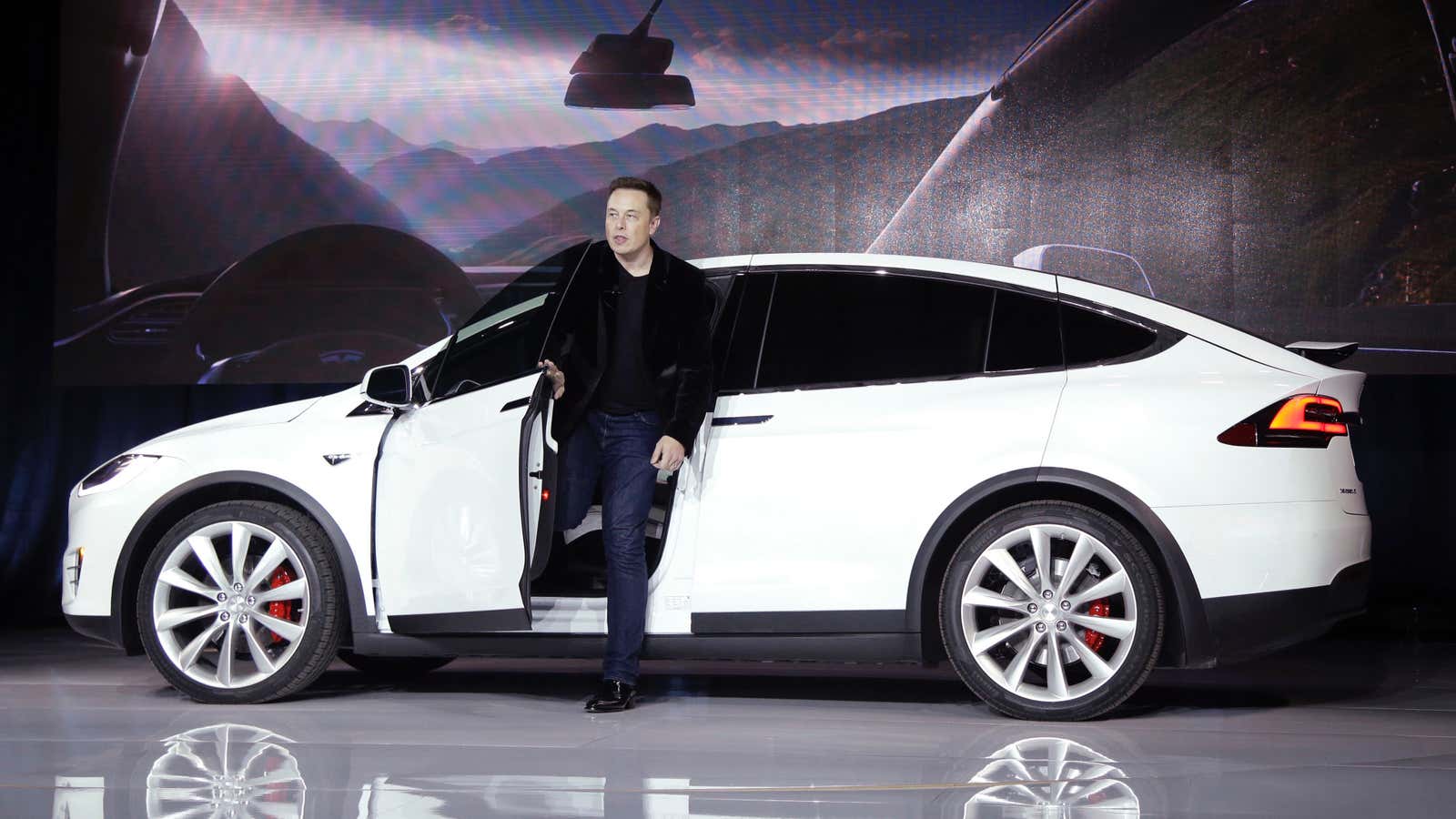It turns out that Elon Musk was “misinformed” when he said that his plans to launch his car company in India faced a major roadblock.
On May 22, the Tesla CEO took to Twitter to announce that his India plans had been dampened by the country’s “Make in India” push which requires foreign companies to source at least 30% of their products locally. For Tesla vehicles, “the supply doesn’t yet exist in India to support that,” Musk wrote.
The Twitterverse flooded the government with requests to create an easier path for Tesla. One user told prime minister Narendra Modi to “reconsider local sourcing norms” as the environment-friendly cars would help achieve the country’s clean energy goals.
“Are you listening? Change the policy or else millions of people in Mumbai, Kolkata, Chennai, and similar cities are at risk,” another user tweeted, referring to the hope that electric cars would help reduce emissions pollution across the country. Others argued that Tesla deserves the three-year waiver because of its “state-of-the-art” cars.
But it seems Tesla won’t need any exemptions after all. Because it turns out that the local sourcing requirement doesn’t apply to the car maker.
Through the “Make In India” Twitter account, the commerce and industry ministry clarified that only foreign retailers—not manufacturers—are required to source a portion of their components locally. As per the policy, “a foreign investor is permitted to sell in any manner: wholesale, retail including e-commerce,” the ministry noted.
In fact, India had earlier invited Tesla to make the country its Asia manufacturing hub. Musk himself had indicated that Tesla might establish a “gigafactory” there to manufacture lithium-ion batteries. A senior roads ministry official told the Economic Times newspaper that Tesla has made no official proposal to produce cars or batteries in the country yet.
If indeed there is no availability of components, as Musk claims, Tesla could import them and assemble the car in India.
If the company expects to sell many Teslas in India, setting up operations there is probably a better bet than importing since India levies a steep 125% duty on imported vehicles. When Tesla Model 3 bookings opened in India last March, its India price had not been revealed but it will presumably be more than double the US retail price of $35,000 (Rs23.4 lakh). That’s well above that of local competitor Mahindra’s electric car which comes with a price tag of between Rs5 lakh (around $7,705) to Rs10 lakh (around $15,410). And there are plenty of other petrol-guzzling cars that come at well under Rs5 lakh.
But even if the company finds takers, it has a rough road ahead: Its plan to install a cross-country network of superchargers could be ravaged by the persistent power outages and blackouts that plague the country. If its trademark autopilot feature makes it onto Indian roads, the country’s notoriously reckless driving and rampant jaywalking will pose their own challenges.




